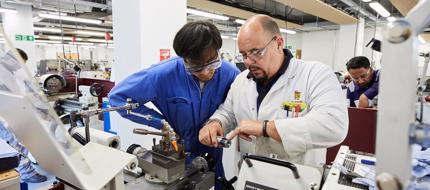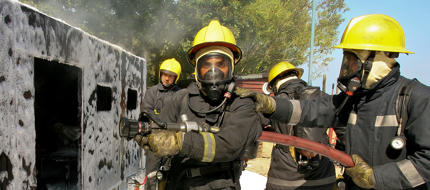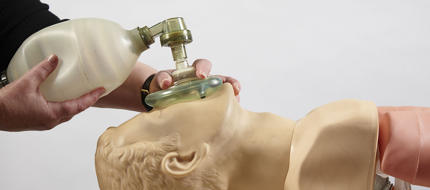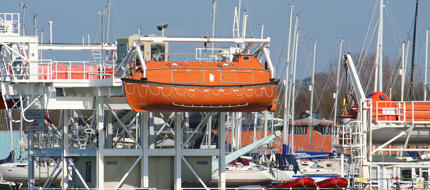About this course
This fully-sponsored cadet training programme leads to an FdEng Marine Engineering, as well as the award of a UK Maritime and Coastguard Agency (MCA) Certificate of Competency (STCW A-III/I OOW).
Marine engineer officers are responsible for the maintenance and operation of the ship’s main propulsion machinery and auxiliary plant, including deck machinery, air conditioning plants and domestic and electrical services. During your training at Warsash, you'll be taught the necessary academic underpinning knowledge, as well as engineering workshop skills training, allowing you to develop a detailed understanding of the safe operation and maintenance of the engine room and auxiliary machinery of a modern merchant vessel.
You'll complete your academic and mandatory safety training with us. This training is complemented with work-based learning on board ship. You'll also do some practical training during your sea phases, which includes completing a MNTB Training Record Book. This will enable you to develop the professional competency needed for the initial MCA certification as an Officer of the Watch.
Officer cadet training schemes typically last for around three years and are split into five phases which alternate between academic studies and practical and safety training, and seagoing periods to gain shipboard experience.
The education and training programme consists of four distinct but complementary elements:
This programme is aligned to the new UK-wide maritime officer cadetship syllabus developed by the Cadet Training and Modernisation (CT&M) Programme, led by the Maritime and Coastguard Agency (MCA). Effective from September 2025, the new syllabus reflects the current practices and technology used aboard modern vessels and supports the development of 'human element' skills - essential learning for today’s aspiring officers.
Certificate in Practical Artificial Intelligence
Every student at Solent University will also have the option to study an additional Certificate in Practical Artificial Intelligence qualification alongside their course. Free of charge, the course ensures you'll be prepared for a fantastic and varied career after graduation.
What you'll study
Phase 1
- 26 weeks (this is approximate and subject to change)
- Engineering Mathematics
- General Engineering Science
- Marine Electronics and Control Systems
- Marine Engineering Principles
- Marine Engineering Systems
- Work-Based Engineering Operations
- Engineering Workshop Skills
- Basic Safety Training Week (BSTW) (STCW short course)
- Proficiency in Designated Security Duties (STCW short course)
Phase 2
- 28 weeks at sea (sea phase lengths are approximate and subject to change)
Phase 3
- 22 weeks (this is approximate and subject to change)
- Further Engineering Science
- Marine Electro-Technology
- Marine Engineering Management
- Marine Propulsion Systems
- Naval Architecture
- Work-Based Engineering Project
- Engineering Workshop Skills
- Human Element, Leadership and Management (Operational) (STCW short course)
- High Voltage (Operational) (STCW short course)
Phase 4
- 32 weeks at sea (sea phase lengths are approximate and are subject to change)
Phase 5
- 22 weeks (this is approximate and subject to change)
- Engineering Workshop Skills
- Proficiency in Medical First Aid (STCW short course)
- Training in Advanced Fire Fighting (STCW short course)
- Proficiency in Survival Craft and Rescue Boats (STCW short course)
- Award of Foundation Degree (FdEng) in Marine Engineering
- MCA orals preparation
- Successful completion of MCA oral examination leads to award of initial Engineer Officer of the Watch MCA Certificate of Competency and end of cadetship.
- IAMI Engineering Knowledge
How you'll study
Where you'll study
The classroom teaching and workshop instruction for this course is delivered from Solent University's East Park Terrace campus, located in Southampton city centre. All mandatory STCW maritime safety training courses are delivered from the Warsash campus.
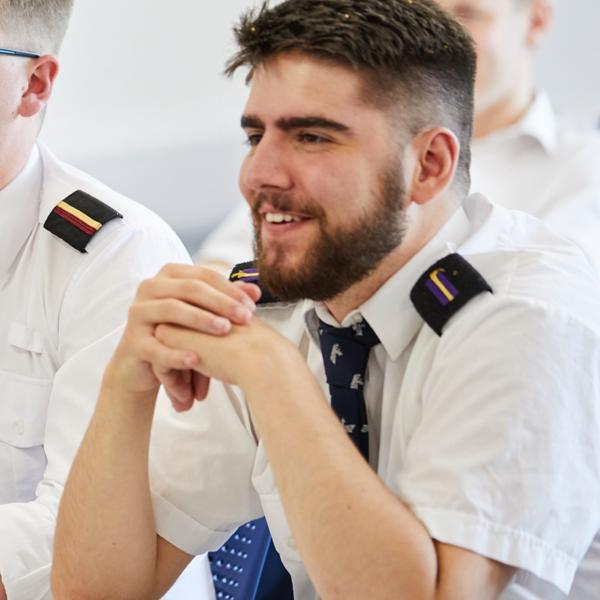
Facilities
How to apply
Entry requirements
A minimum of 48 UCAS tariff points (for engineering, including a numerate subject)
Plus GCSE at grade 9 to 4 (A* to C) in the following subjects:
- Mathematics (preferably Higher Tier)
- English
- Science (with significant Physical Science content)
Medical requirements
Officer cadets must be in good health and capable of passing the Merchant Navy Medical Examination (ENG1).
Anyone contemplating a career as a ship’s officer would be well advised to take a medical examination and sight test as soon as possible to find out if there are any physical bars to their career aspirations.
The MCA holds a list of approved doctors throughout the UK who are able to provide ENG1 seafarer medical examinations. This list can be found here.
Nationality
British shipping companies will normally only recruit UK or European Union nationals. However, the MCA certificates of competency may be awarded to people of any nationality and the training programmes are open to all.
A potential international candidate from outside the UK and EU should secure sponsorship from a suitable shipping company that will be able to provide appropriate sea service as part of the cadetship programme.
International students should also hold a formal International English Language Testing System (IELTS) certificate of at least 5.5, as a good knowledge of written and spoken technical English is required to commence the programme.
Application and sponsorship
To apply for a foundation degree in marine engineering, you must undertake a three year engineer officer cadet training programme approved by the Merchant Navy Training Board (MNTB) and meet the academic entry requirements as stated.
The next step is to find a company to sponsor you so you can complete the sea service elements of the training programme. You should apply direct to the sponsoring companies for details of their recruitment policies and the availability of sponsorship.
There are a number of UK sponsoring companies that recruit UK/EU nationals as officer cadets to work in the various shipping sectors of the merchant navy (for example, cargo, container, cruise, tanker etc.), either individual shipping companies recruiting to fulfil their own staffing needs or training organisations that recruit on behalf of their clients.
Companies normally start the recruitment process around January each year for entry in the following September or January.
